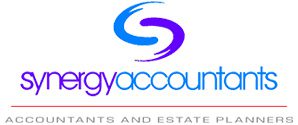
2 Ways Negative Gearing Can Work for You.
‘Negative Gearing’ is a very common tax–time discussion topic in Australia. The term, coined by middle to high-income earners, essentially describes financial situations where the expenses associated with an asset are greater than the income earned. Some people may question whether the tax write-offs are actually worth the benefit. In some cases, we believe it is, which is why we have outlined two ways negatively gearing can work for you.
But First … A little more about what is negative gearing
Negative gearing can apply to any asset or investment, not just housing.
The Australian Treasury best describes it:
“Individuals who are negatively geared can deduct their loss against other income, such as salary and wages. This is consistent with the broader operation of Australia’s personal income tax system.
Australia’s tax system operates on the principle that people pay tax on their personal income, less any expenses (called deductions) in generating that income. This is similar to how business profits (that is, income less expenses) are taxed, i.e. tax is levied on the net profit of a business, not its gross revenue.
Deductions for costs incurred in producing income recognise that different people have different costs in producing income.”
#1. Property
Negatively gearing and rental property is a common word association in Australia. Of course, most people get into the property market to make money, but because of its volatility, it is never a sure thing. Yes, you earn income from the rent, but because of the upkeep and expenses of the property, sometimes the rental will run at a loss.
Under Australian legislation, an investor is allowed to claim certain losses from their investment properties against their taxable income. Here is an example of how it is calculated:
- Yearly rental income: $30,000
- Less yearly expenses: $36,500
- Landlord insurance: $1,500
- Mortgage interest: $25,000
- Repairs and maintenance: $5,000
- Property manager: $5000
- Taxable loss or write off $6,500.
This $6,500 expense will reduce your total taxable salary.
These are just some of the expenses which you can claim. There are others such as body corporate levies, land tax, rates and water etc. For a full list, please visit the ATO website or talk to your accountant.
#2. Shares
If you borrow money to invest in shares and the dividends from the shares are less than the interest on the loan, then you can claim that as a write-off.
For example, if you purchase EFT Shares which provide a return of $9,000, but the interest on your purchase loan equates to $10,000 per year, then you will have a loss of $1,000.
Risks Associated with Negative Gearing
While the above examples may sound great, you need to be aware of the potential pitfalls.
The first is that certain expenses are capped, meaning not all losses are going be claimable. Therefore, any surplus which can’t be claimed will come out of your back pocket.
The same can be said of the rental market. What happens if you can’t fill a vacancy? You cannot claim for a property which isn’t earning rental income.
Finally, you need to weigh the risk against the reward. Can you afford to maintain these tax write-offs? Negatively gearing only makes sense in the short term, as you will want an eventual gain, and you may even want that gain to be greater than the losses incurred while holding the asset.
Understanding what you can claim, and what you cannot, can get very confusing. And, when you get it wrong, it can lead to headaches and possible penalties with the Australian Tax Office. To avoid these extra stressors, we always recommend you seek expert advice. At Synergy Accountants and Estate Planners, we stay up-to-date with all the latest legislation and offer stress-free solutions to our clients.
To find out more, please book an appointment.
*Disclaimer* The abovementioned advice is true and correct as at the date of publication. The information contained in this blog is to be considered a guide only and is not intended to be used in lieu of advice received from your registered accountant or tax agent.





